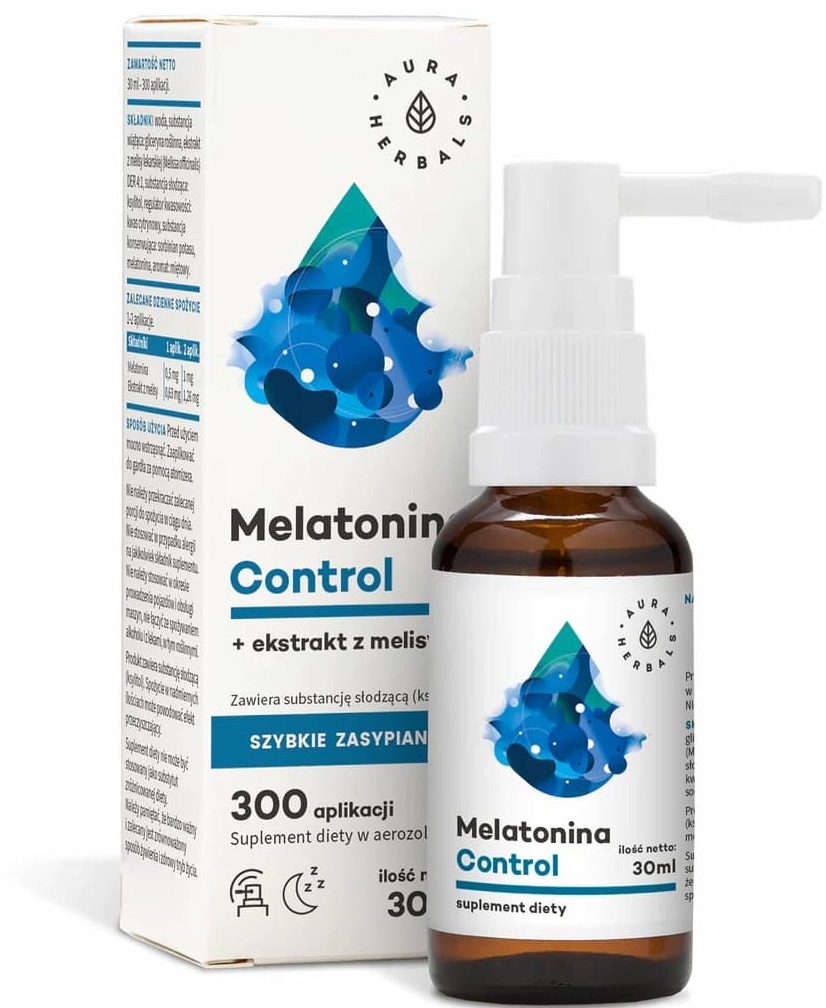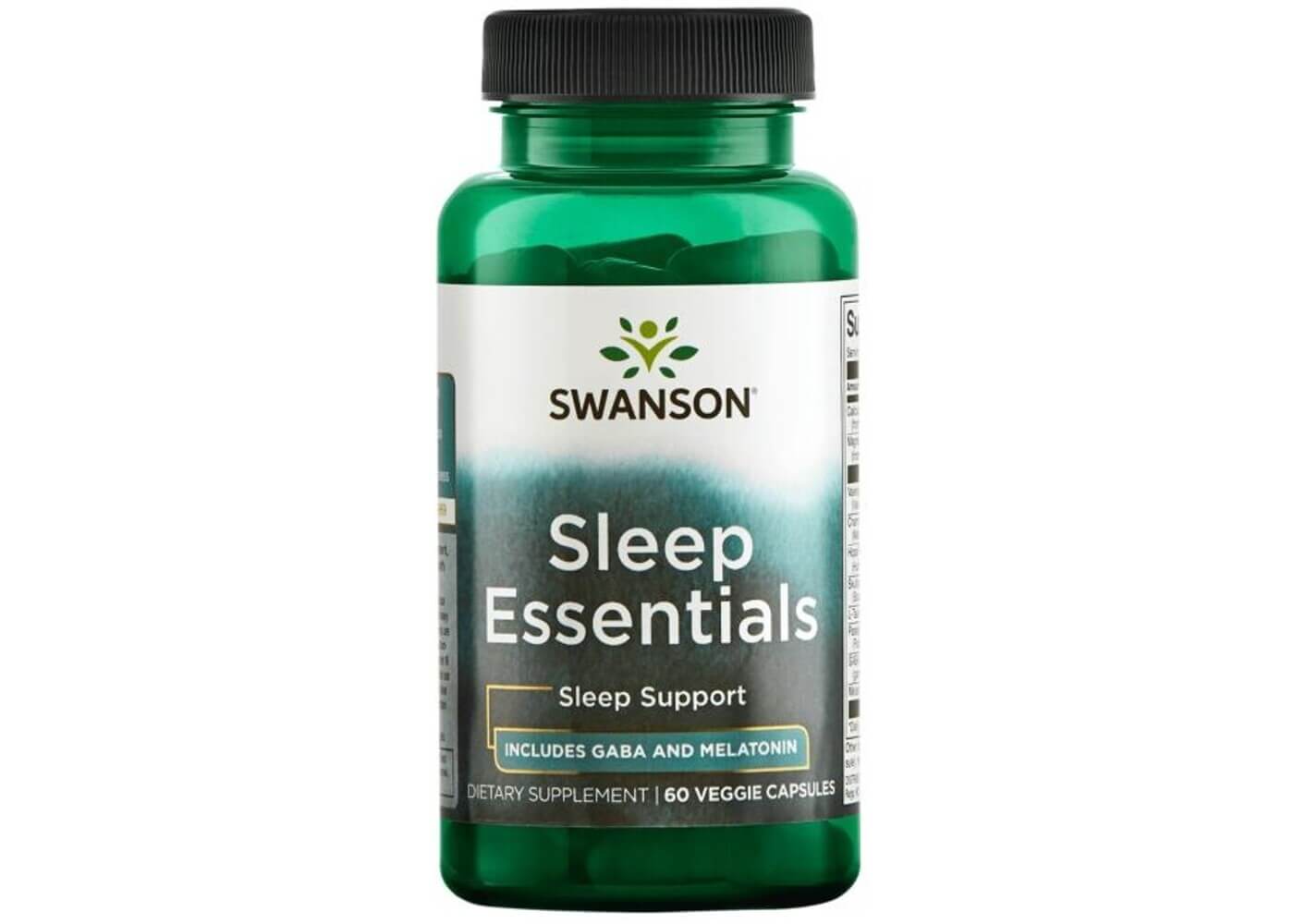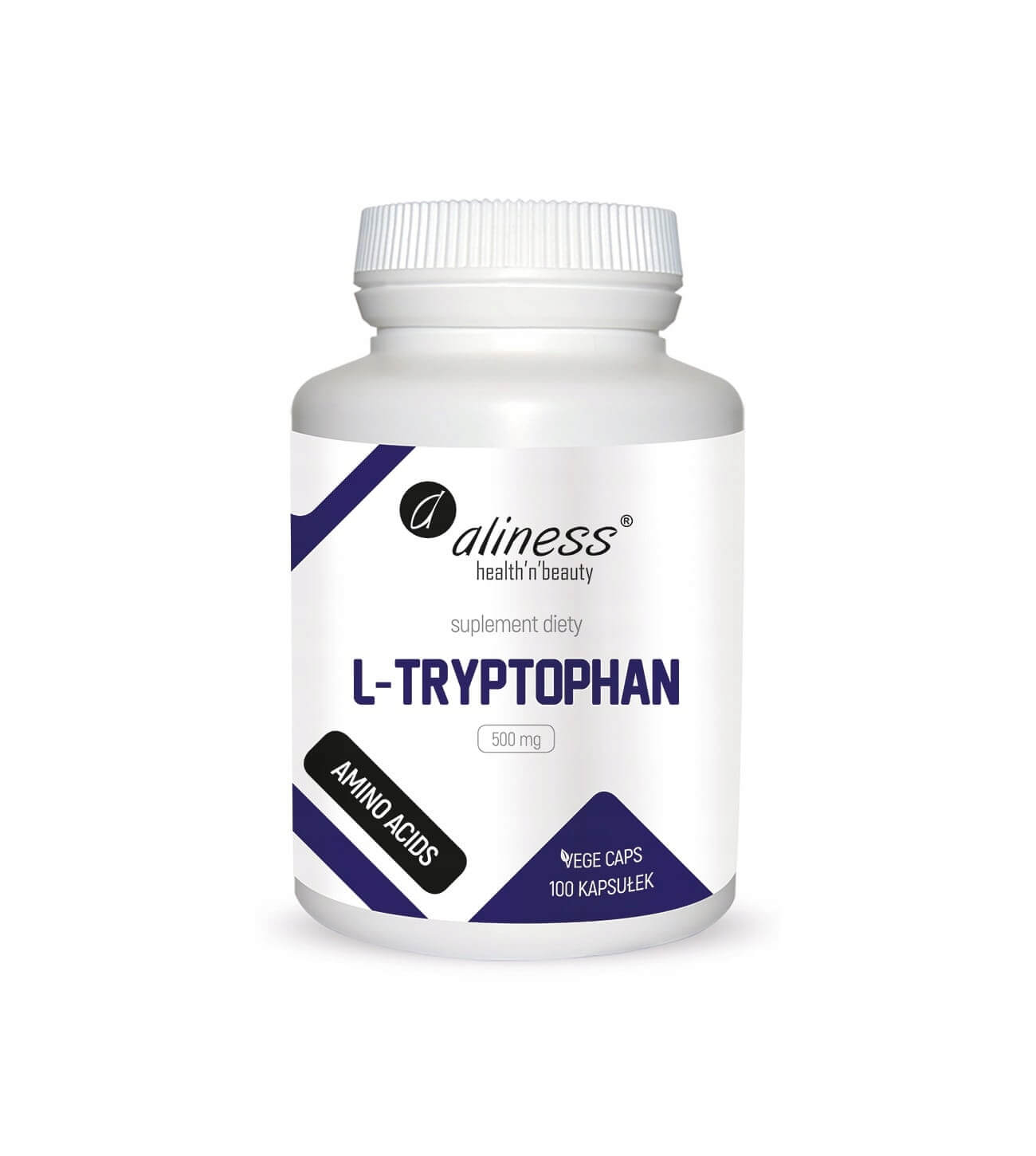Passionflower (Passiflora incarnata) properties and effects
Passionflower is a beautiful plant with interesting health-promoting properties.


Learn more about our editorial process
.

Learn more about our editorial process
.

Learn more about our editorial process
.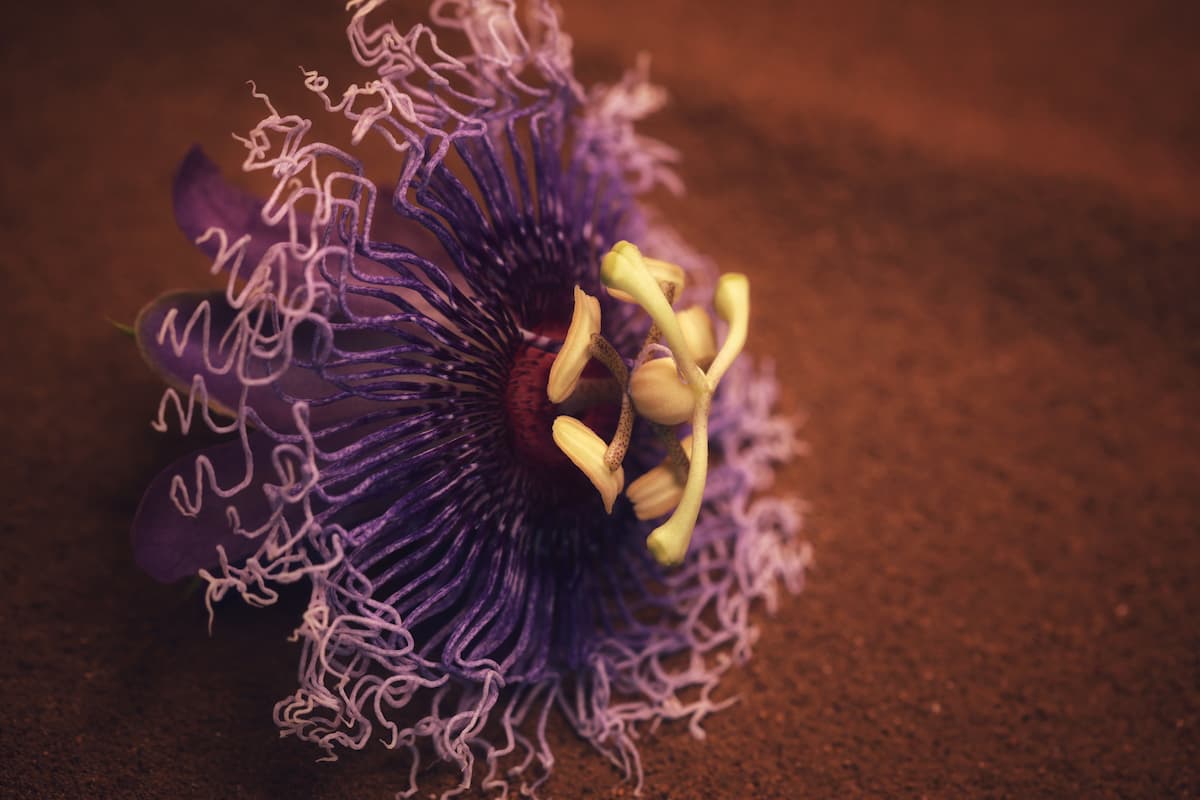
Why you can trust us
Articles on Natu.Care are written based on scientific research, data from government websites and other reliable sources. The texts are written in cooperation with doctors, nutritionists and other health and beauty experts. Articles are reviewed before publication and during significant updates.
.Learn more about our editorial process
.Information about advertisements
Content on Natu.Care may contain links to products from the sale of which we may receive a commission. When creating content, we adhere to high editorial standards and take care to be objective about the products discussed. The presence of affiliate links is not dictated by our partners, and we select the products we review ourselves completely independently.
.Learn more about our terms and Conditions
.For thousands of years, nature has been a source of many healing remedies and it is worth taking advantage of what it offers us. Passionflower is of interest to lovers of natural support for body and soul.
In this article, I will introduce you to the health-promoting properties of passionflower, which may work well for your ailments - especially if you are experiencing mental tension or sleep problems. I asked Dr Witold Tomaszewski, M.D., for his opinion on the use of this plant.
.
From this article you will learn:
.- What is passionflower and what are its properties .
- What are the indications for use .
- How to consume passionflower safely .
- What are the contraindications, interactions and side effects .
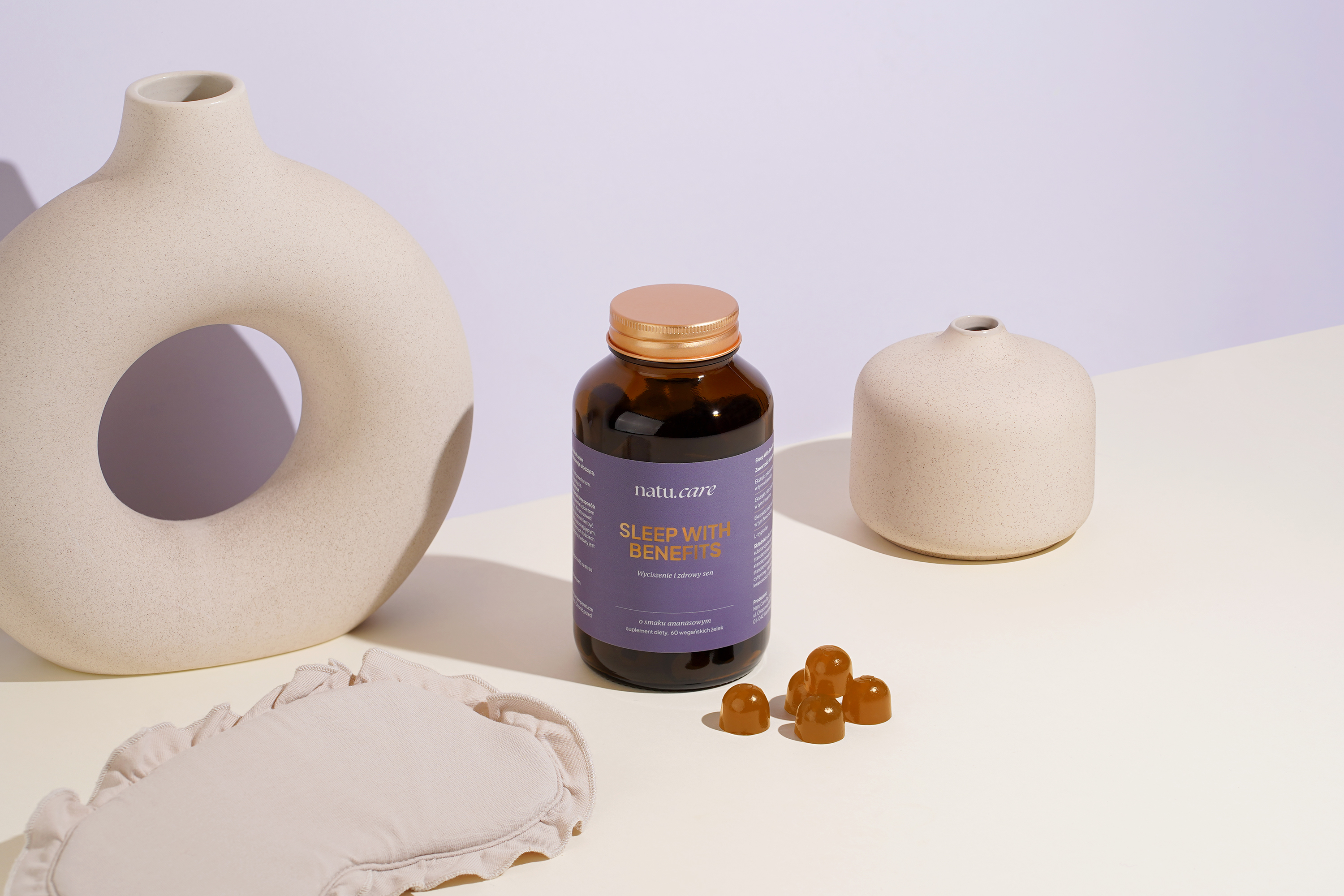
Sprawdź, za co pokochały go tysiące klientek Wegańskie żelki na sen, Ashwagandha KSM-66, ananas. -15% z kodem BLOG15
Wegańskie żelki na sen, Ashwagandha KSM-66, ananas
Wreszcie się wyśpisz! Wegańskie żelki na sen z najwyższej jakości ashwagandhą KSM-66®, ekstraktami ziołowymi i tryptofanem utulą Cię do snu.
Zobacz cenę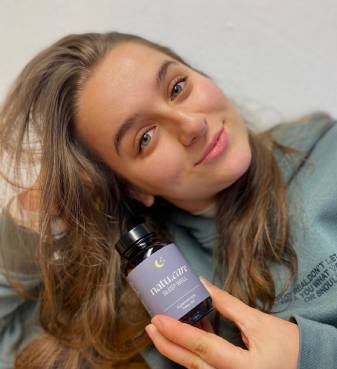
Bez problemu wstaje rano z budzikiem, co wcześniej się nie zdarzało, mam więcej energiiEwa Szczapinska
See also:
- Melatonin
- Melatonin for sleep
- Ashwagandha
- Adaptogens
- Berberine
- Piperine
- Ashwagandha
- Indian ginseng
- Wild rose
- Curcuma
- Maceberry
- Caffeine
- Prescription-free sleep pills
Passionflower - properties
.
About 500 species of passionflower (passionflower)and are known. Some studies suggest that certain varieties of it may have unique medicinal benefits - for example, the eponymous passiflora incarnata.
You can read more about the properties of these plants in the article Passionflower (passiflora).
The passionflower, also known as the passionflower or passion flower, received its curious name in the 16th century. It was the Spaniards who saw in the flower's structure parts resembling the crown of thorns and nails with which the crucified Christ was nailed.
Native Americans used it as a sedative and medicinally for boils, wounds, earaches and liver problemsand. Currently, researchers are mainly focusing on its calming effects in their studiesand. What do the research results so far suggest?
Passiflora - effects
.
Passiflora incarnata is a rich source of compounds from the flavonoid group and indole alkaloids. These are naturally occurring substances in plants with health-promoting effects on the human bodyand. The sedative and calming effects of passionflower may be related to the presence of maltol in this plant .
What does passionflower fleshflower help with?
.
Passionflower may prove to be a good support for sleep complaints and mental tension. It may also alleviate unpleasant symptoms during menopause and neuropathic pain. Check below to see exactly what the researchers found.
Anxiety
.
Research suggests that passiflora incarnata may help reduce symptoms of anxiety and restlessnessand. In the future, this plant could be used as an adjunct before pre-operative anaesthesia, as it exhibits anti-anxiety effects without affecting psychomotor function or increasing drowsiness - unlike some drugs.
In 2020, Polish researchers reviewed previous research findings on passionflowerand. This work tested the plant's potential to alleviate certain symptoms of neuropsychiatric origin (schizophrenia, bipolar affective disorder, depression and ADHD). In a few years, this plant may prove to be a helpful adjunct therapy for these diseases.
Sleep
.
Research suggests that passionflower may help alleviate symptoms of insomnia and sleep disorders through its anti-anxiety effectsand. The preliminary results relate to a study in which participants drank a dose of passionflower or a placebo once a day for seven days. The study participants consuming an infusion of the plant fell asleep faster and experienced fewer awakenings during the night, compared to the group drinking the placeboand.
The results of the study have been linked to the fact that passionflower increases the concentration of gamma-aminobutyric acid (GABA) in the brain. This compound reduces its activityand, which may help to relax the mind and body, influencing easier falling asleep and uninterrupted sleep.
Are you interested in the body's natural support for sleep problems?
.Read:
Stress
.
Results of a review of studies suggestand that the anti-anxiety effects of passionflower are comparable to drugs such as oxazepam or midazolam (drugs with sedative effects).
Scientists suggest that the plant may prove to be a safe pharmaceuticaland that could be used as a complementary therapy for certain mental illnesses or increased stressand.
Might be of interest to you!
.
Check out how other plants help to combat stress. Find out more in the articles:
- Ashwagandha - effects, properties, contraindications
- Adaptogens - what they are, types, effects, supplementation
Product description
A supplement to replenish melatonin deficiencies in the body with an interesting aerosol form. The combination of melatonin with gently calming melissa speeds up falling asleep and ensures a restful night's sleep.
Advised for people suffering from sleep problems, working night shifts and frequently changing time zones.
Pros and cons
A supplement to replenish melatonin deficiencies in the body with an interesting aerosol form. The combination of melatonin with gently calming melissa speeds up falling asleep and ensures a restful night's sleep.
Advised for people suffering from sleep problems, working night shifts and frequently changing time zones.
Additional information
A supplement to replenish melatonin deficiencies in the body with an interesting aerosol form. The combination of melatonin with gently calming melissa speeds up falling asleep and ensures a restful night's sleep.
Advised for people suffering from sleep problems, working night shifts and frequently changing time zones.
Sleep Essentials
Product description
The dietary supplement Sleep Essentials by Swanson is a product containing melatonin, enriched with ingredients of plant origin. Melatonin helps to shortenóthe time it takes to fall asleep. A beneficial effect occurs when 1 mg of melatonin is consumed shortly before going to bed. Chamomile supports physical and mental well-being and helps to relax and maintain healthy sleep.
Pros and cons
The dietary supplement Sleep Essentials by Swanson is a product containing melatonin, enriched with ingredients of plant origin. Melatonin helps to shortenóthe time it takes to fall asleep. A beneficial effect occurs when 1 mg of melatonin is consumed shortly before going to bed. Chamomile supports physical and mental well-being and helps to relax and maintain healthy sleep.
Additional information
The dietary supplement Sleep Essentials by Swanson is a product containing melatonin, enriched with ingredients of plant origin. Melatonin helps to shortenóthe time it takes to fall asleep. A beneficial effect occurs when 1 mg of melatonin is consumed shortly before going to bed. Chamomile supports physical and mental well-being and helps to relax and maintain healthy sleep.
Expert opinion
L-Tryptophan
Product description
Tryptophan is involved in the production of serotonin, the so-called happiness hormone. It is therefore responsible for a good moodóy and the proper functioning of internal organsóy. It can be used as an aid in the treatment of anxietyós and depressive conditions.
It is also a substrate in the production of melatonin, coordinating the work of the master biological clock - it regulates diurnal rhythms, including sleep and wakefulness, is responsible for maintaining the quality of sleep and allows regeneration.
Pros and cons
Tryptophan is involved in the production of serotonin, the so-called happiness hormone. It is therefore responsible for a good moodóy and the proper functioning of internal organsóy. It can be used as an aid in the treatment of anxietyós and depressive conditions.
It is also a substrate in the production of melatonin, coordinating the work of the master biological clock - it regulates diurnal rhythms, including sleep and wakefulness, is responsible for maintaining the quality of sleep and allows regeneration.
Additional information
Tryptophan is involved in the production of serotonin, the so-called happiness hormone. It is therefore responsible for a good moodóy and the proper functioning of internal organsóy. It can be used as an aid in the treatment of anxietyós and depressive conditions.
It is also a substrate in the production of melatonin, coordinating the work of the master biological clock - it regulates diurnal rhythms, including sleep and wakefulness, is responsible for maintaining the quality of sleep and allows regeneration.
Expert opinion
Dr Jacob's Melatonin + B12
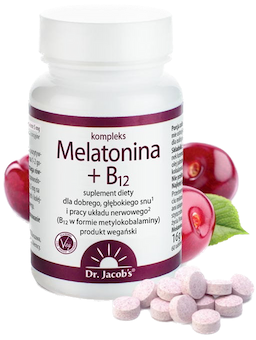
- Active ingredients: melatonin, vitamin B12
- Form: sucking pastilles .
- Dosage: 1 lozenge per day .
- Sufficient for: 60 days .
Product description
Sweet pleasures in the evening are rather forbidden. Well, unless it's cherry lozenges with melatonin and vitamin B12, whichóre going to improve the quality of your sleep.
One tablet in the evening will shorten your sleep time and stop you waking up.
One tablet in the evening will shortenóyour time to fall asleep and stop you waking up during the night. The addition of vitamin B12 will improve the functioning of the nervous system, making you even better rested.
The following tablets will help to improve the quality of your sleep.
Pros and cons
Sweet pleasures in the evening are rather forbidden. Well, unless it's cherry lozenges with melatonin and vitamin B12, whichóre going to improve the quality of your sleep.
One tablet in the evening will shorten your sleep time and stop you waking up.
One tablet in the evening will shortenóyour time to fall asleep and stop you waking up during the night. The addition of vitamin B12 will improve the functioning of the nervous system, making you even better rested.
The following tablets will help to improve the quality of your sleep.
Additional information
Sweet pleasures in the evening are rather forbidden. Well, unless it's cherry lozenges with melatonin and vitamin B12, whichóre going to improve the quality of your sleep.
One tablet in the evening will shorten your sleep time and stop you waking up.
One tablet in the evening will shortenóyour time to fall asleep and stop you waking up during the night. The addition of vitamin B12 will improve the functioning of the nervous system, making you even better rested.
The following tablets will help to improve the quality of your sleep.
User review
Sweet pleasures in the evening are rather forbidden. Well, unless it's cherry lozenges with melatonin and vitamin B12, whichóre going to improve the quality of your sleep.
One tablet in the evening will shorten your sleep time and stop you waking up.
One tablet in the evening will shortenóyour time to fall asleep and stop you waking up during the night. The addition of vitamin B12 will improve the functioning of the nervous system, making you even better rested.
The following tablets will help to improve the quality of your sleep.
Pain of neurological origin
.
Neuralgic pains (neuralgias) arise as a result of damage to or dysfunction of the nervous systemand. Pain, numbness, tingling or burning negatively affect the patient's quality of life , sometimes limiting their activities. Research into passionflower as a neuralgia reliever is promising and suggests that this plant may be helpful in the treatment of these ailmentsand.
Menopause
.
Menopause is a period when many changes occur in women under the influence of hormonesand. Changing levels of oestrogen and other key hormones for a woman can cause: mood changes, anxiety, increased nervousness, hot flashes, among other things. Research suggests that passionflower may reduce these unpleasant symptoms associated with menopauseand.
Addictions
.
Scientists are looking at the effects of passionflower on relieving withdrawal symptoms and treating addictions to drugs and nicotine . Studies on a group of addicts suggest that this plant, in combination with medication, may be helpful in reducing the unpleasant symptoms associated with withdrawal from these harmful substances.
Anti-inflammatory and antioxidant effects
.
Many substances contained in herbs exhibit antioxidant effects (prevent disease) due to the compounds they contain, e.g. flavonoids , glycosides . They are used in the supportive treatment of many diseases, such as diabetes, atherosclerosis and cardiovascular disease. More research is needed to confirm the medicinal use of passionflower in the aforementioned diseases, but its antioxidant activity cannot be denied .
Learn about other plants with antioxidant effects in the articles:
- Ashwagandha - action, properties, contraindications .
- Curcumin - properties, side effects, contraindications
- Piperine - effects, side effects, when first effects?
Piperine - indications for use
.
When is it advisable to use passionflower?
- You have problems calming down before bed and falling asleep.
- You are experiencing stress and tension on a daily basis.
- You are experiencing stress and tension.
- You are currently going through a difficult time of menopause.
- You are experiencing stress and tension on a daily basis.
- You suffer from neuropathic pain. .
- You want to strengthen your body naturally. .
- .
- .
Forms of administration and recommended intake
- .
Passionflower is used in the form of:
- naparose, .
- aqueous extract, .
- powder, .
- capsules, .
- drops, .
- .
Passionflower extract is also an ingredient in some compounded herbal preparations with sedative effects. How to take it depends on the manufacturer's instructions and the content of the active ingredients.
How to take passionflower.
Passionflower is a beautiful plant, but one should be careful with its consumption - this beauty hides a powerful force. I asked Dr Witold Tomaszewski, M.D., about the safe and medicinal use of passionflower herb.
The ratio given in the table (e.g. 4:1) is the ratio of the amount of plant material to the amount of plant preparation obtained. Its indication is intended to allow comparison of medicines containing the same substance but obtained in different ways (e.g. extracts with different degrees of concentration). The notation 4:1 means that from 4 parts of the plant 1 part of the extract was obtained..
 .
.
Witold Tomaszewskidoctor of medical sciences
..
|
Form of fleshy passionflower |
Method of ingestion . |
|
| . |
Passionflower extract in a 4:1 ratio |
Therapeutic doses
|
|
Tincture in a ratio of 1:8 .Usually, 70% alcohol is used to prepare the extract. Such an extract is diluted by taking 8 parts of water for every 1 part of extract.
|
Dilute. |
|
|
Dried herb for tea preparation |
|
|
|
Fluid extract |
|
|
|
Dietary supplements with passionflower or compounded preparations |
Because of the multiplicity of dietary supplements, the various forms of administration and the different DER (Drug Extract Ratio - information on how much of the raw material the extract is derived from), the supplementation recommendations on the manufacturer's leaflet should be followed. |
Contraindications to the use of passionflower
- .
Passionflower is a gift from nature that is worth taking advantage of. However, be sure to read the contraindications to avoid dangerous interactions with medicines or harm yourself.
What are the contraindications to using passionflower?
Pregnancy and breastfeeding
- .
Do not use passionflower during pregnancyand as it may induce uterine contractions and premature labour. Little is known about its safety during breastfeeding, so its consumption during this period is not recommended .
Interactions with medicines
- .
Passionflower has strong effects on the central nervous systemand. Caution should be exercised when using passionflower and other centrally acting drugsand (e.g., sedative and sedative) at the same time.
If you are currently using compounded herbal preparations with sedative or sleep-promoting effects, check for passionflower in the formulation. The use of passionflower incarnata in excess, may be harmful to your health..
 .
.
Witold Tomaszewskidoctor of medical sciences
.Effects on ability to drive and operate machinery
- .
Passionflower may cause drowsinessand, therefore driving and operating machinery should be avoided during its use.
Can children take passionflower?"
- .
The use of passionflower herb is not recommended in children under 12 years of age. It is not known how long-term use affects the young body. If your child is nervous, agitated, tearful - see a doctor or consult a child psychologist.
Side effects of passionflower
- .
Passionflower is considered safe for useand. However, in some people it may cause side effectsand, such as:
- insomnia, .
- dizziness, .
- disorientation, .
- .
This is usually related to overconsumption or interaction with other drugs.
See also health articles:
Natural methods of supporting the body with various health problems are a good complement to various therapies. However, if you have not felt an improvement in your health and well-being for a long time, or your problems are getting worse, consult a specialist.
Which plant from the passionflower family do you want to read an article about? Let me know in the comments. The weirder the name, the better!
Summary
- .
Remember:
- Passionflower is one of more than 500 species of plants in the passionflower family.
- Passionflower is one of more than 500 species of plants in the passionflower family.
- The name is taken from the association of the appearance of the flower of this plant with the crown of thorns and the nails with which the crucified Christ was nailed.
- The Passionflower is a species of passion flower.
- Passionflower can help with sleep problems, stress, anxiety. It is a good therapy support for women during menopause. It also relieves neuropathic pain and can be used in the treatment of drug and nicotine addiction.
- Particularly in the treatment of drug and nicotine addiction.
- Contraindications to the use of passionflower include pregnancy, breastfeeding, use of sedative and sleep-inducing drugs. .
- Passionflower is a plant with great potential to complement the treatment of many conditions in the future. .
FAQ
Does passionflower have a positive effect on sleep?
.Yes, passionflower has a positive effect on sleep. Research suggests that it can alleviate symptoms of sleep disorders such as inability to fall asleep, frequent awakenings and insomnia due to its anti-anxiety properties. When used regularly before bedtime, it can improve the quality and length of sleep.
What are the contraindications to the use of passionflower herb?
.Pure passionflower herb should not be used by pregnant women, breastfeeding women, children under 12 years of age and people who consume drugs that affect the central nervous system (CNS), e.g. benzodiazepines, sedative drugs, sleeping drugs.
.What is passionflower fleshy for?
.Passionflower exhibits anti-anxiety effects, reduces symptoms of anxiety, promotes sleep and is a helpful adjunct to the treatment of moderate sleep disorders. It alleviates pains of neurological origin, has anti-inflammatory effects and reduces hot flashes during menopause.
What does passionflower herb help with?
.Passionflower herb helps to relieve symptoms of restlessness and anxiety, supports the treatment of various sleep disorders, relieves hot flashes during menopause, relieves pain of neurological origin, and may be helpful in reducing symptoms associated with drug withdrawal.
Is passionflower healthy?
.Yes, passionflower is a plant with positive effects on the human body. Its use has a number of benefits, particularly for mental health. It alleviates symptoms of anxiety and restlessness, helps with sleep and has a sedative effect. When taken in appropriate doses, it is safe.
After what time does passiflora take effect?
.The sedative and sleeping effects of passiflora are felt approximately 30-90 minutes after ingestion. A reduction in stress and anxiety can be felt after a few days of use. Best effects are achieved with regular consumption.
What not to combine passionflower with?
.Passionflower should not be combined with medications that affect the central nervous system such as sleep medications, antiepileptics, benzodiazepines. It is also inadvisable to consume alcohol during its use. A doctor should be consulted before consuming passionflower.
- .
Sources
.See all
.Akhondzadeh, S., Kashani, L., Mobaseri, M., Hosseini, S. H., Nikzad, S., & Khani, M. (2001). Passionflower in the treatment of opiates withdrawal: A double-blind randomized controlled trial. Journal of Clinical Pharmacy and Therapeutics, 26(5), 369-373. https://doi.org/10.1046/j.1365-2710.2001.00366.x
Appel, K., Rose, T., Fiebich, B., Kammler, T., Hoffmann, C., & Weiss, G. (2011). Modulation of the γ-aminobutyric acid (GABA) system by Passiflora incarnata L. Phytotherapy Research: PTR, 25(6), 838-843. https://doi.org/10.1002/ptr.3352
Breivogel, C., & Jamerson, B. (2012). Passion flower extract antagonizes the expression of nicotine locomotor sensitization in rats. Pharmaceutical Biology, 50(10), 1310-1316. https://doi.org/10.3109/13880209.2012.674535
Colomeu, T. C., de Figueiredo, D., de Matos da Silva, P., Fernandes, L. G. R., & Zollner, R. de L. (2022). Antiproliferative and Pro-Oxidant Effect of Polyphenols in Aqueous Leaf Extract of Passiflora alata Curtis on Activated T Lymphocytes from Non-Obese Diabetic (NOD SHILT/J) Mice. Antioxidants, 11(8), Article 8. https://doi.org/10.3390/antiox11081503
Flavonoids: An overview | Journal of Nutritional Science | Cambridge Core. (n.d.). Retrieved 15 March 2023, from https://www.cambridge.org/core/journals/journal-of-nutritional-science/article/flavonoids-an-overview/C0E91D3851345CEF4746B10406908F52
Free radicals and antioxidants: Updating a personal view | Nutrition Reviews | Oxford Academic. (n.d.). Retrieved 15 March 2023, from https://academic.oup.com/nutritionreviews/article/70/5/257/1909866
Janda, K., Wojtkowska, K., Jakubczyk, K., Antoniewicz, J., & Skonieczna-Żydecka, K. (2020). Passiflora incarnata in Neuropsychiatric Disorders-A Systematic Review. Nutrients, 12(12), 3894. https://doi.org/10.3390/nu12123894
Jensen, T. S., & Finnerup, N. B. (2014). Allodynia and hyperalgesia in neuropathic pain: Clinical manifestations and mechanisms. The Lancet Neurology, 13(9), 924-935. https://doi.org/10.1016/S1474-4422(14)70102-4
Ngan, A., & Conduit, R. (2011). A Double-blind, Placebo-controlled Investigation of the Effects of Passiflora incarnata (Passionflower) Herbal Tea on Subjective Sleep Quality. Phytotherapy Research, 25(8), 1153-1159. https://doi.org/10.1002/ptr.3400
Panche, A. N., Diwan, A. D., & Chandra, S. R. (2016). Flavonoids: An overview. Journal of Nutritional Science, 5, e47. https://doi.org/10.1017/jns.2016.41
Passionflower. (n.d.). NCCIH. Retrieved March 15, 2023, from https://www.nccih.nih.gov/health/passionflower
Sarris, J. (2018). Herbal medicines in the treatment of psychiatric disorders: 10-year updated review. Phytotherapy Research, 32(7), 1147-1162. https://doi.org/10.1002/ptr.6055
Studies on Passiflora incarnata Dry Extract. I. Isolation of Maltol and Pharmacological Action of Maltol and Ethyl Maltol. (n.d.). Retrieved March 15, 2023, from https://www.jstage.jst.go.jp/article/cpb1958/22/5/22_5_1008/_article
- .
Editorials
Meet the team

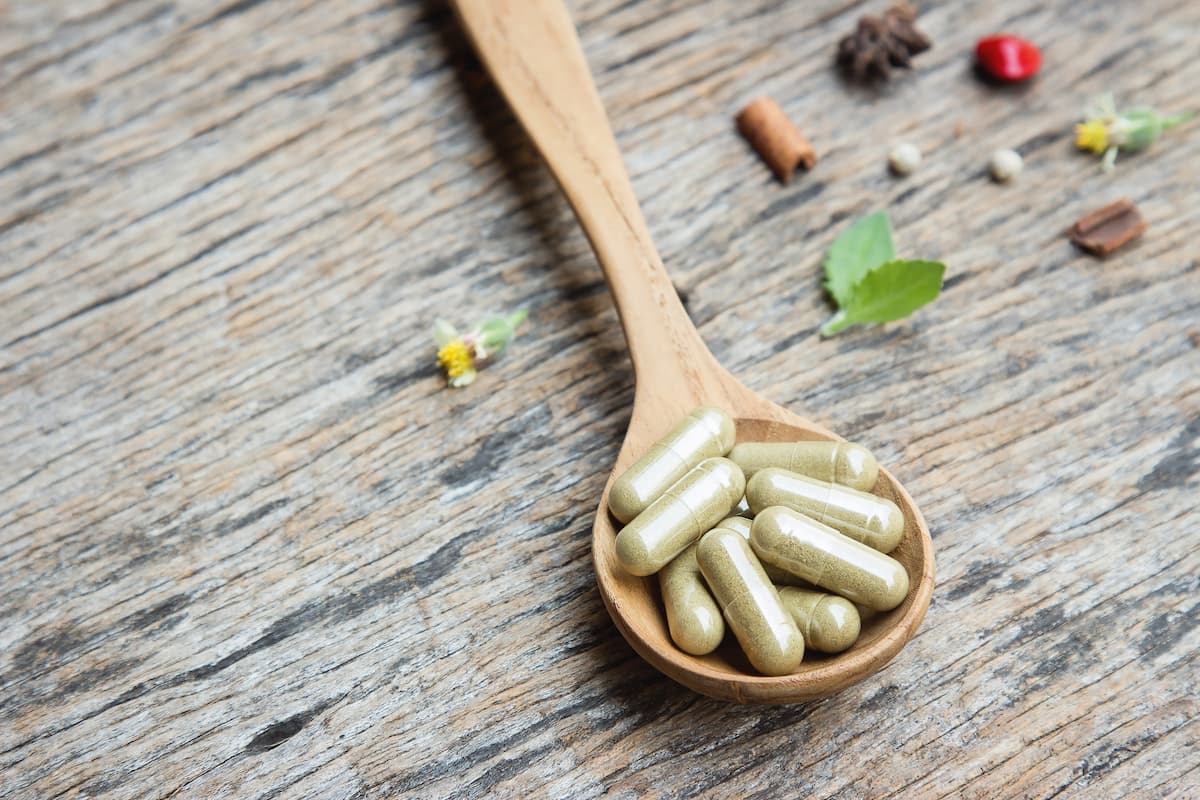
Ashwagandha affects thyroid hormone levels. Find out if you can use it.
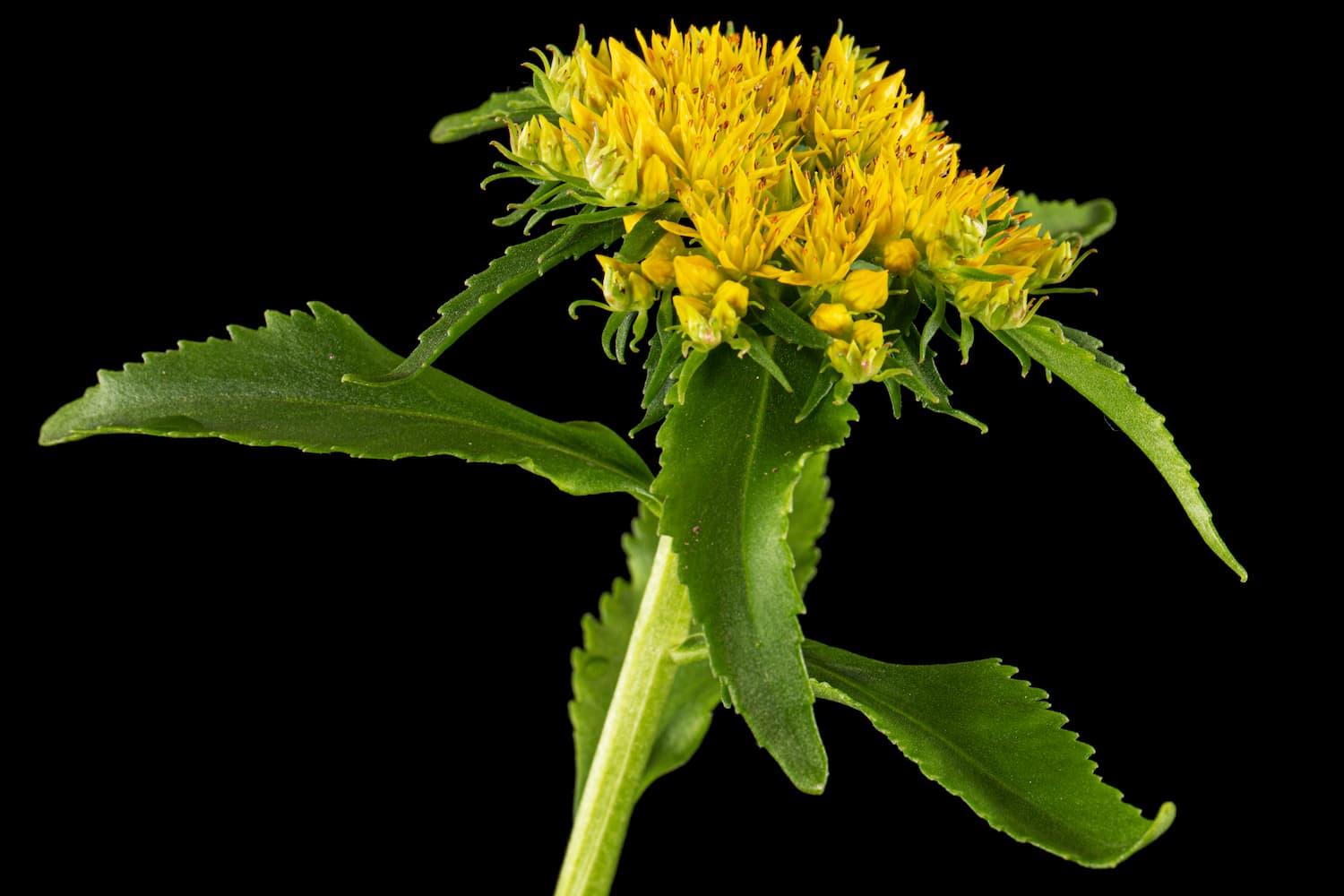
See how mountain pintail can affect your wellbeing.

Check out the opinions of doctors and other professionals about ashwagandha. Also find out what people on the forum think about it.
